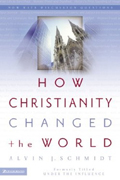
Volume IV, Issue XIV
Rethinking Heaven
The 'other' Weekly News Magazine [click to read] has the cover story: "Rethinking Heaven." With Easter just around the corner I held my breath for another intellectual brusharound of the subject of Faith. I was happily surprised to see the story open with a mention of "Heaven is for Real" by Todd Burpo. The book describes what a young boy saw when he had a unique experience during an emergency appendectimy. Here is the video version:
A Little Boy Describes His Time in Heaven
Unfortunately the article then wanders off into the realm of modern theologians who deny the existence of Heaven or Hell. Toying with the obvious behavior modification advantages it might have created in the hands of the Church:
"The main article in this week’s Time Magazine, Rethinking Heaven, by author John Mecham, calls into question the concept of Heaven; Hell, too. Many recent biblical scholars have overtly stated that neither exists despite what is said in Sunday School. Of course, with that reward-punishment concept gone, the leverage of ‘the church’ is also weakened. For it is in the pews where good Christians are taught and warned about sin, where the carrot of Heaven and the stick of Hell are dangled over their heads by the good preacher. But, what if it was all just a hoax? A ruse? A control-agent? Well, then, there wouldn’t be a need for a Sunday worship service. And no money in the collection plate." -- Man with the Muckrake Blog [1.]
Unfortunately, those who would diminish Heaven must overcome some serious history.
You Can't Understand Western Civilization Without It

Leaves in a pool of water in Jarman's Gap.
This Survey [click to read] featured in Jewish World Review should give one cause to consider the implications of education as an entirely secular pursuit.
"You can't understand Western civilization unless you understand religion," she said. "How can you understand your cultural heritage in terms of art? How do you understand literary allusions in novels? Even a non-religious person needs religious literacy to understand he artifacts of our civilizations."
Indeed, I have written before about how much of what we value in our culture today has its roots firmly in faith that prompted men and women to live out their convictions and in the process they made society a better place.
How Christianity Changed the World

Originally published as:
Under the Influence,
Alvin J. Schmidt
Zondervan, 2001
Here is a book that really ought to be on your reading list. As we prepare to celebrate the wonder of Emmanuel -- "G-d With Us," it would be interesting to consider the historical influence of the Christian faith in out civilization. Obviously many modern writers consider it not all that great, or even destructive. They point to such events as the Crusades and the Spanish Inquisition and conclude that religion is not such a great influence on society. An atheist group in England is buying bus ads that say "why believe in G-d, Just be good for goodness' sake." Just in time for Christmas, no less, and using red and green lettering.
But such thinking ignores a vast body of history where men and women, inspired by their faith, abolished slavery, instituted humane treatment of the poor and mentally ill and generally lifted the situation of their fellow citizens. What good is "good for goodness sake" if good is not defined from a higher source. Indeed one can then make the conclusion that it is 'good' to kill six million members of another race. It happened in Twentieth Century Germany. Hitler may have appealed to Christianity in his speeches, but his actions go against the clearly understood teachings of the Faith. Study the life and death of Deitrich Bonhoffer and you will understand where the principles of his beliefs led one citizen to actively oppose the policies of Hitler.
It is a mistake to assume that Western Civilization is automatically 'Christian.' Schmidt looks back to the days of the Roman Empire, when Christians were the ones who rescued unwanted children from destruction and the Middle Ages, when Christians cared for the victims of plague that most simply shunned. Time and time again, Christianity is seen leading men and women to challenge the default direction of Western civilization.
We will read Dicken's 'A Christmas Carol' this coming Christmas season, but will we stop to think of how Charles Dickens was addressing social issues of his day. And what of William Wilberforce, the British parliamentarian who, moved by his faith, labored half a century to abolish slavery in the British possessions? When Dorethea Dix and Florence Nightengale improved healthcare methods, it was their faith that moved them.
Schmidt provides a great body of scholarly research to bring this forgotten history to light again. One point I take from his writing is that Christianity is at its best when it speaks into culture. It has been rendered less effective by its present 'mainstream' status [as when it is seen as a branch of the Republican Party]. It is all too easy to hijack the language of faith without embracing its life-changing path of discipleship.
Theodore Dalrymple writes in City Journal: "What the New Atheists are Missing." Himself a non-believer, he points to a time when a teacher's hypocrasy led him to question. Dalrymple does not, however, reject the realm of faith as a force in creating and ordering societies. He see's naturalistic explainations and philosophies quite insufficient for dealing with all of human existence. Richard Dawkins' assertions that religious education is tantamount to child abuse, for example seem to Dalrymple no more than the rebellious ranting of a child who's just learned that his parents are not perfect. All of us have experienced some sort of disillusionment in our youth. I remember a time when a nun of the 'Sisters of Mercy' punished me for some infraction I had not [at least in my recollection] committed. I too questioned a lot of things. The Cuban missle crisis fueled more unanswered anxiety as I careened into adolescence.
But something happened in my teenaged years that is etched firmly in my memory. It was a dark and stressful winter day when I decided to walk in the woods near Triadelphia Reservoir. Something spoke to me that afternoon that was more eloquent than the ranting of hormones and the perceived unfairness of life. The buds of the trees were growing fat. here was the hope of spring and new life. Clearly spring would come. The buds gave evidence of an event hoped for. They were indeed the substance of something yet unseen!
"For the invisible things of him from the creation of the world are clearly seen, being understood by the things that are made, even his eternal power and Godhead; so that they are without excuse:" -- Romans1:20 KJV
Holy writ makes the point that the order and beauty of the creation speaks eloquently of the creator. Thus Intelligent Design, though it merely points out the complex mechanisms of nature, leads one to seek the source of such wisdom. I look to that time in the trees as an affirmation of personal faith in a creator. Though at that point it was pretty detatched and intellectual at best.
"...for he that cometh to G-d must believe that he is, and that he is a rewarder of them that diligenly seek him." Hebrews 11:6b KJV
As a young adult I embraced faith in Christ as redeemer and rewarder. The journey of faith had begun with the fat buds years before though.Therefore I must conlude that those who consider the design of the universe dangerous information have good reason if they fear that others may follow the path I have walked. Dawkins would prefer me to credit space aliens with seeding life to this planet and thus push the hard questions of origin to another world. Darwinism, in its purest form, rejects the idea that this world is some sort of intentional creation. Of course this leads to the rejection of theism and ultimately the rejection of certain absolutes. The film 'Expelled' takes a good look at 'eugenics' and how it is supported by a darwinian world view. In the first half of the Twentieth Century certain proponents of eugenics sought to speed evolution along by eliminating the reproduction of certain undesirable types of persons. The results were forced sterilization of the mentally ill and the holecaust. Contrast that movement with Dorethea Dix and others who, motivated by Christian faith, improved conditions for the mentally ill.
Alvin Schmidt makes a good case in his book 'Under the Influence' that faith is a builder of society rather than a force to destroy it. Dalrymple the non-believer would concur. Thus the danger of Christian principles such as 'intelligent design' leading to dangerous conclusions is much inflated. One might even conclude that the free discussion of order and design,wherever it is found, is wholesome. Certainly there is no basis for its exclusion from the academy.The argument will no doubt be made: "what about the crusades, what about jihad, religion is dangerous?" Yes, it is certainly something that may be missused, but that must be countered with an honest look at how the so-called "good" science of evolution was the foundation of eugenics. Millions of people were killed in this misguided attempt to improve humanity. Ironically, such brilliant men as Albert Einstein met the criteria for elimination. We reduce the world to only naturalistic explainations at our own peril. The argument for open inquiry, with men and women of Faith seated at the table, stands.

"When through the woods,and forest glades I wander,
and hear the birds sing sweetly in the trees;
when I look down,from lofty mountain grandeur,
and hear the brook and feel the gentle breeze"
-- "How Great Thou Art" Verse 2

Detail of a Mural by Laney Riley and Bob Kirchman depicting the promise of a New Heaven and a New Earth.
Heaven, the great hope of Saints of old has grown less "real" to modern man. Insulated from death and many of the challenges of our forefathers, the hereafter takes less of a place in our minds. Yet life is but for a short span. We do well to consider the implications of eternity.




6 comments:
So, you 'borrowed' my thoughts. That's OK, but what you present as 'proof' of Heaven or Hell is little more than click-your-ruby-slippers wishing and hoping.
God isn't up there; God is within you. Do you understand the words of Jesus?
I do understand the words of Jesus. My experience is similar to John Newton's. "I once was lost but now am found, was bind but now I see."
Study the words of Jesus, not just the writings of theologians, and you might be surprised at what you find there!
Well, Bob, I have for many decades and I've come to the conclusion that Jesus lived his life as example for the rest of us. Jesus is not 'divine' because the 'performed' miracles and 'rose' from the dead.
Jesus exposed the divine which was inside of him by living his life for others. That's my theology.'
What's yours?
"As a literary historian, I am perfectly convinced that whatever else the Gospels are they are not legends. I have read a great deal of legend and I am quite clear that they are not the same sort of thing. They are not artistic enough to be legends. From an imaginative point of view they are clumsy, they don’t work up to things properly. Most of the life of Jesus is totally unknown to us, as is the life of anyone else who lived at that time, and no people building up a legend would allow that to be so." - C.S. Lewis
“Regardless of what anyone may personally think or believe about him, Jesus of Nazareth has been the dominant figure in the history of Western culture for almost twenty centuries….”
– Jaroslav Pelikan, Yale historian
Could a Myth Alter History? [click to read]
The Poached Egg [click to read]
"“I am trying here to prevent anyone saying the really foolish thing that people often say about Him: I’m ready to accept Jesus as a great moral teacher, but I don’t accept his claim to be God. That is the one thing we must not say. A man who was merely a man and said the sort of things Jesus said would not be a great moral teacher. He would either be a lunatic — on the level with the man who says he is a poached egg — or else he would be the Devil of Hell. You must make your choice. Either this man was, and is, the Son of God, or else a madman or something worse. You can shut him up for a fool, you can spit at him and kill him as a demon or you can fall at his feet and call him Lord and God, but let us not come with any patronizing nonsense about his being a great human teacher. He has not left that open to us. He did not intend to.”
― C.S. Lewis, Mere Christianity
Post a Comment